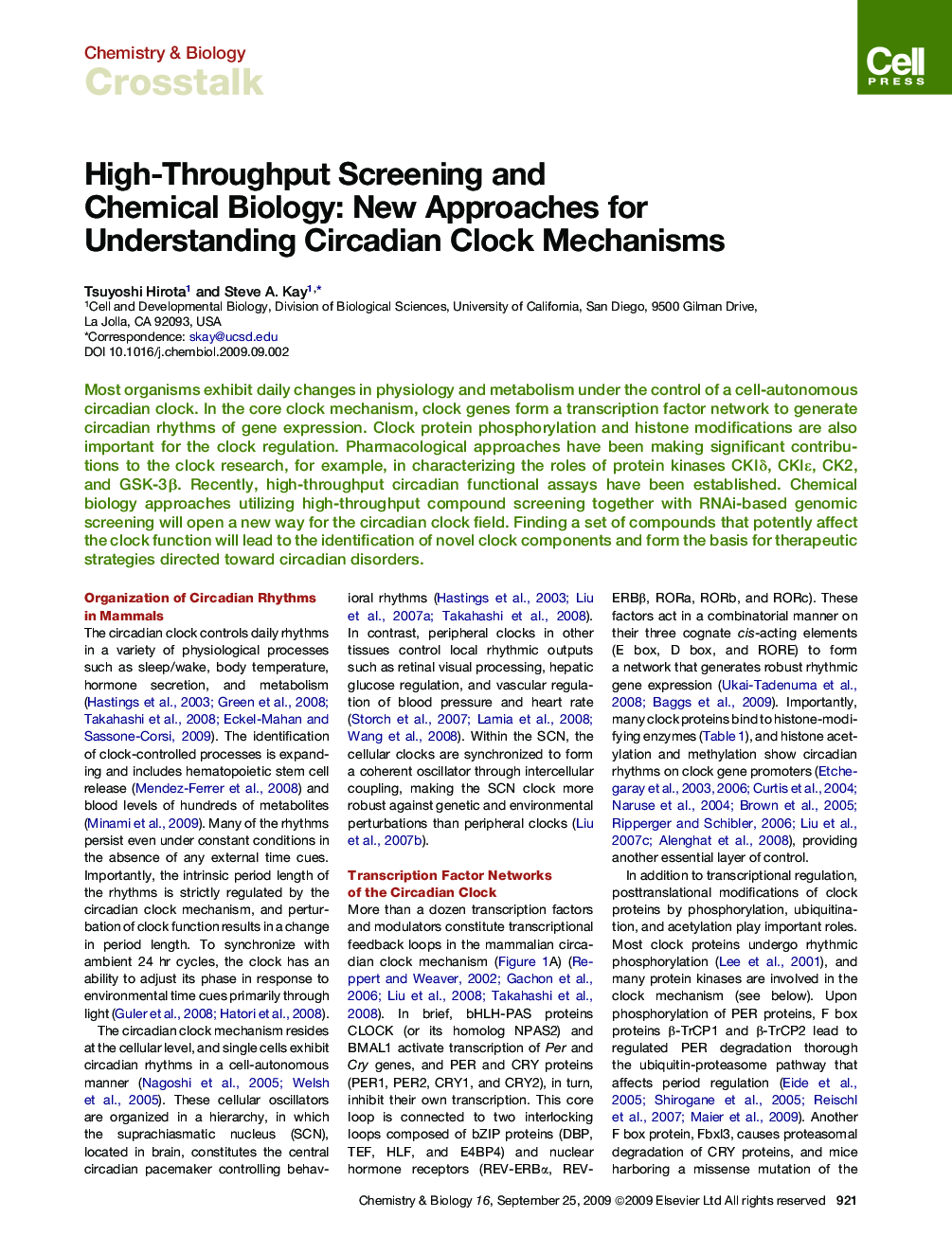| Article ID | Journal | Published Year | Pages | File Type |
|---|---|---|---|---|
| 1393787 | Chemistry & Biology | 2009 | 7 Pages |
Most organisms exhibit daily changes in physiology and metabolism under the control of a cell-autonomous circadian clock. In the core clock mechanism, clock genes form a transcription factor network to generate circadian rhythms of gene expression. Clock protein phosphorylation and histone modifications are also important for the clock regulation. Pharmacological approaches have been making significant contributions to the clock research, for example, in characterizing the roles of protein kinases CKIδ, CKIɛ, CK2, and GSK-3β. Recently, high-throughput circadian functional assays have been established. Chemical biology approaches utilizing high-throughput compound screening together with RNAi-based genomic screening will open a new way for the circadian clock field. Finding a set of compounds that potently affect the clock function will lead to the identification of novel clock components and form the basis for therapeutic strategies directed toward circadian disorders.
